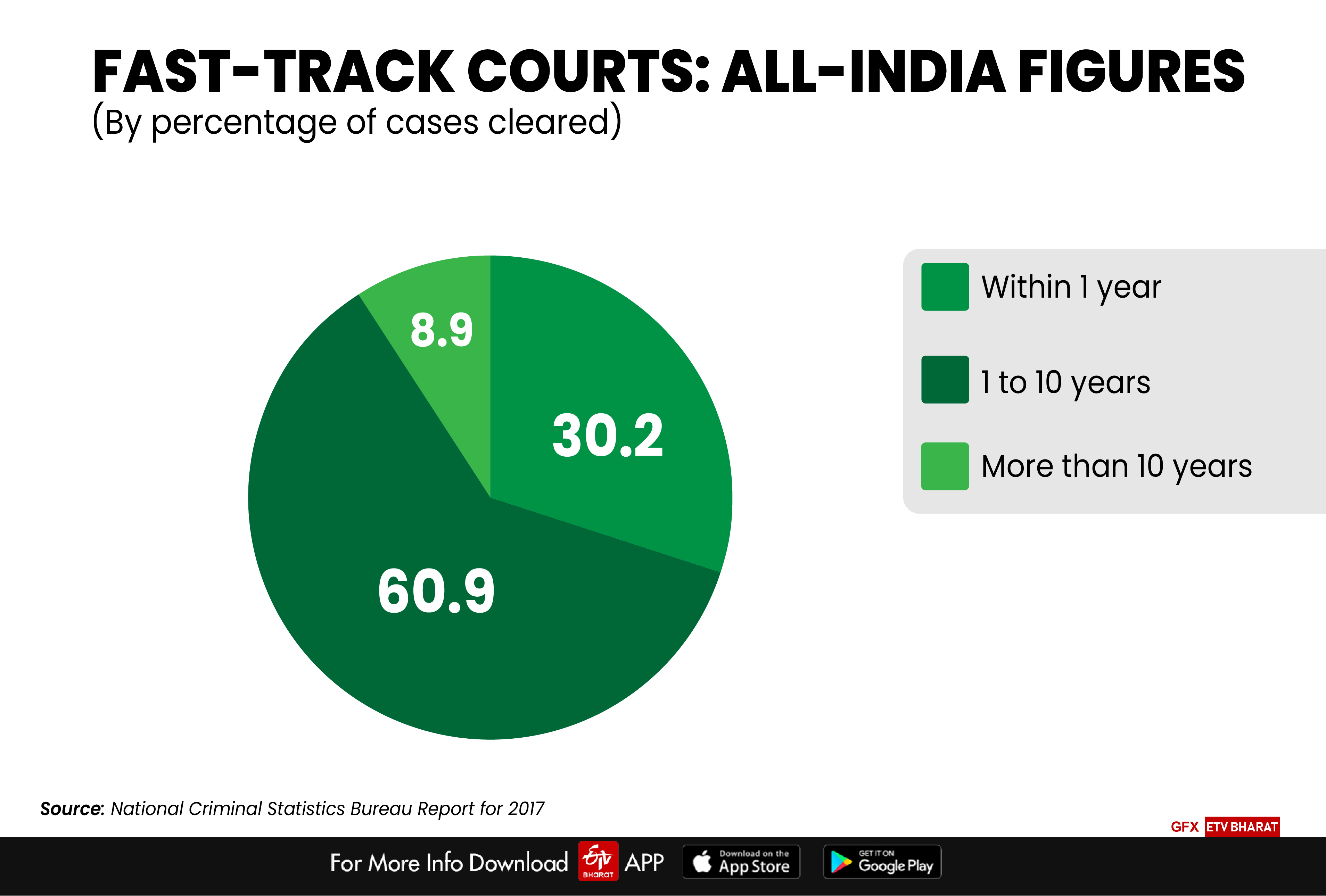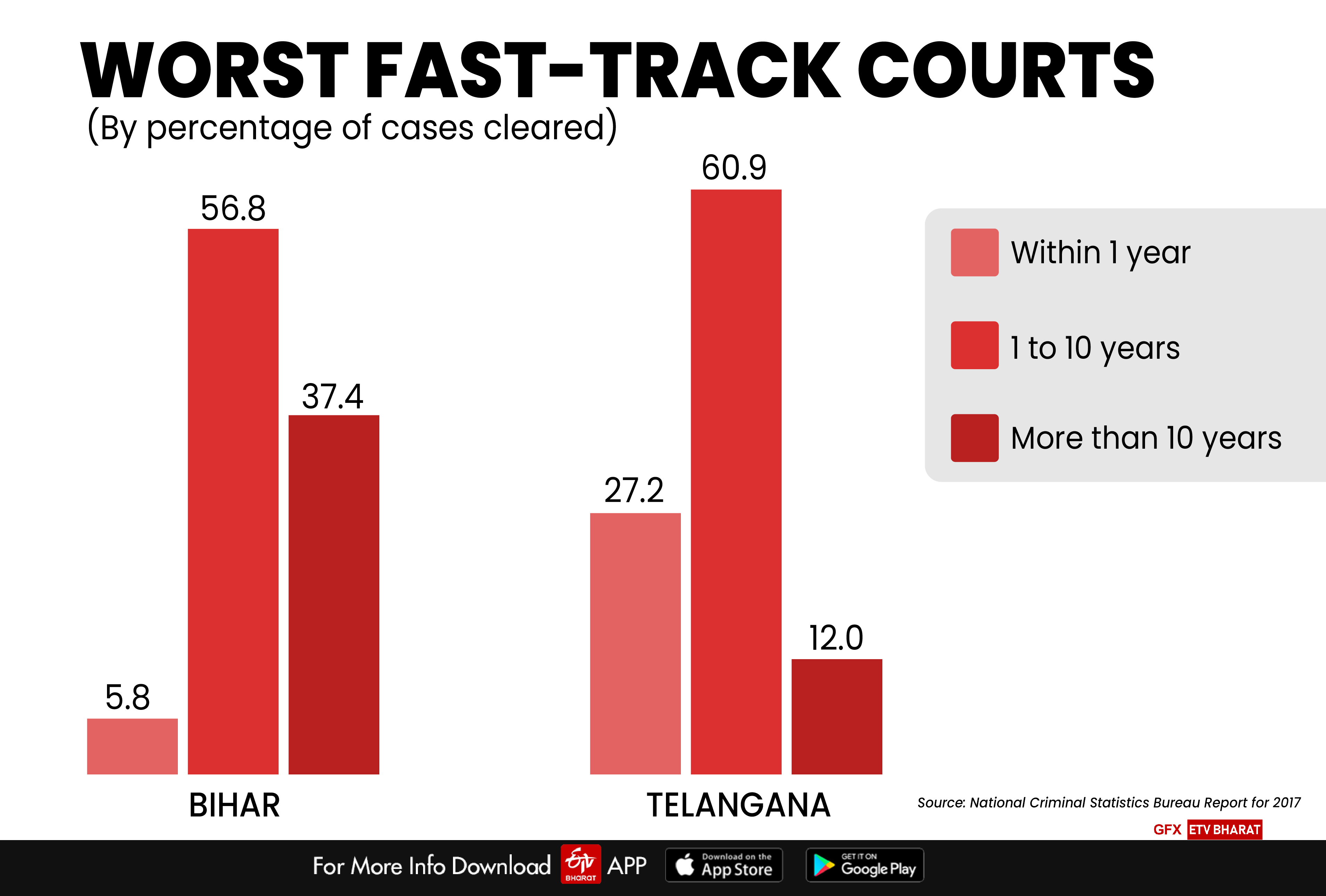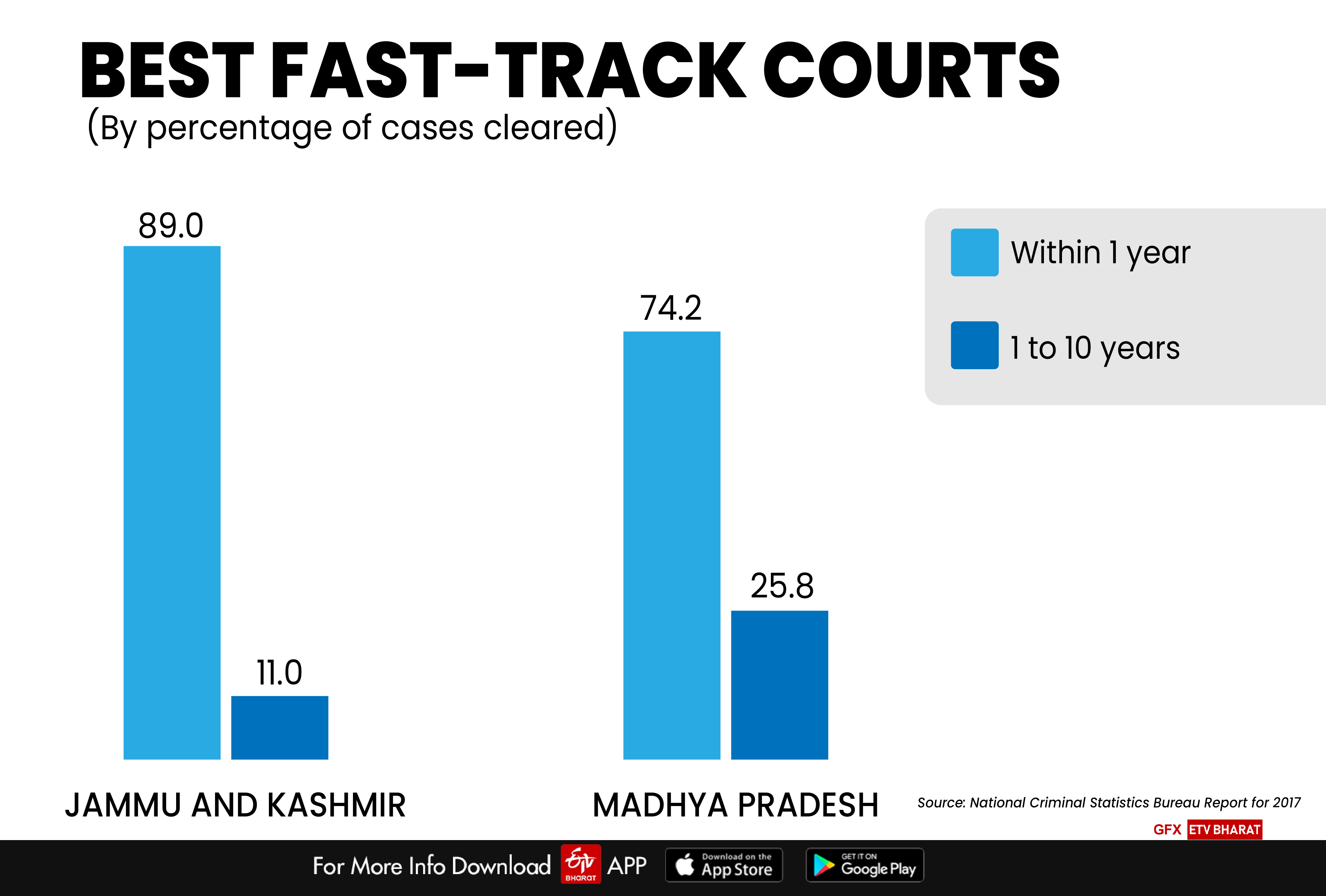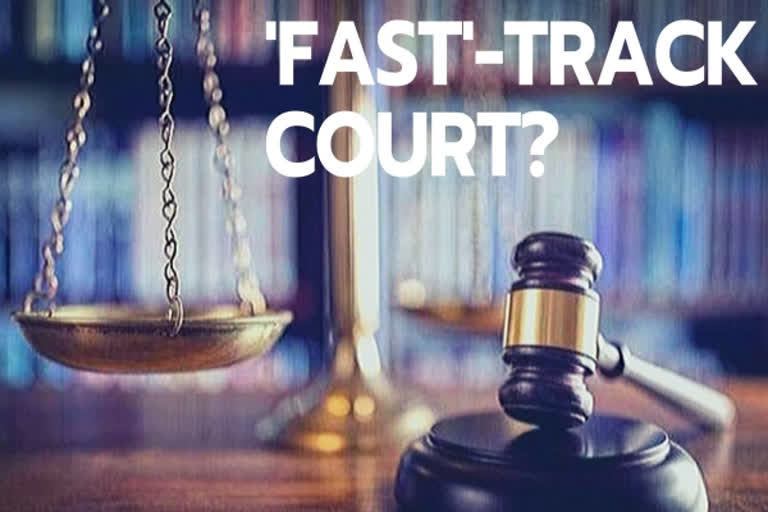Hyderabad: The Centre on Friday announced its plan of setting up 1,023 fast-track courts special courts (FTSCs) for "expeditious trial" and "disposal" of rape cases, including that of minors, following the nationwide outrage over the brutal gang-rape and murder of a 27-year-old veterinarian in Hyderabad and the death of 23-year-old Unnao rape victim, who died seeking justice.
But how fast are fast-track courts?
Though the Supreme Court, in 1986, had recognised speedy trial to be a fundamental right, India continues to have a high number of pending cases.
As per an article written by Bibek Debroy, the Chairman of Economic Advisory Council to the Prime Minister, and published in the Financial Express, the all-India average of cases disposed of per Fast-Track Court (FTC) per month stood at a meagre 15.
Only 30 percent cases reaching the Indian fast-track courts were cleared in a year, 60 percent within one to 10 years, while 8.9 percent cases took more than 10 years, as per the National Criminal Statistics Bureau Report, 2017.

Debroy further claimed that in 2017, fast-track courts in only six states managed to dispose 50 percent of their cases within a year.
Among all the Indian states, Bihar stands as the worst-performing state, with its FTCs completing 6,704 cases in 2017, of which, 2,507 cases took more than ten years, and 1,655 cases took between five and ten years.
Bihar is followed by Telangana, which has a similar track record, with 60 percent of cases taking one to 10 years to reach conclusion, and 12 percent cases taking more than 10 years to close.

While some states/Union Territory perform poorly so far as disposal of cases by their FTC's are concerned, some have performed fairly.
The FTC's in the Union Territory of Jammu and Kashmir has disposed of as many as 89 percent of cases within a year, with zero number of cases taking more than 10 years to reach a conclusion.

Madhya Pradesh is another state which has recorded a rate of case disposal by its FTC's, with 74.2 percent of cases being disposed within a year, and zero number of cases taking more than 10 years for disposal.
Will setting up of more fast-track courts guarantee faster disposal of cases?
Some of the first fast-track courts in the country were set up in 2000, and governments have been pitching for setting up additional FTC's and simultaneously increasing the grant for the creation of the same.
In terms of money, ₹870 crore was released by the Centre between 2000-2001 and 2010-2011 towards the 581 FTC's operational in the country till March 2019.
Apart from stressing on increasing the number of FTC's across the country, the government has also been mulling the idea of hiring additional judges.
But data collated from the Supreme Court’s ‘Court News’ between 2010 and 2017 show otherwise.
Also read: Three-year-old girl allegedly raped in Unnao
For instance, in Karnataka, the number of working judges steadily increased between 2012 and 2017 but pendency did not reduce. Similarly in other States, such as Maharashtra, Kerala, Delhi and West Bengal, increase or decrease in the number of judges did not affect the pendency of cases.
In an article published in The Hindu, Arunav Kaul, who has been working on judicial reforms in the country, argues that the problem of increasing pendency lies in the "systematic issues" faced by such courts, including inadequate staff and poor IT infrastructure, delay in getting reports from the understaffed forensic laboratories, frivolous adjournments and over-listing of cases, among others.
Also read: WATCH: Patient's relatives vandalise hospital after being referred to different facility



